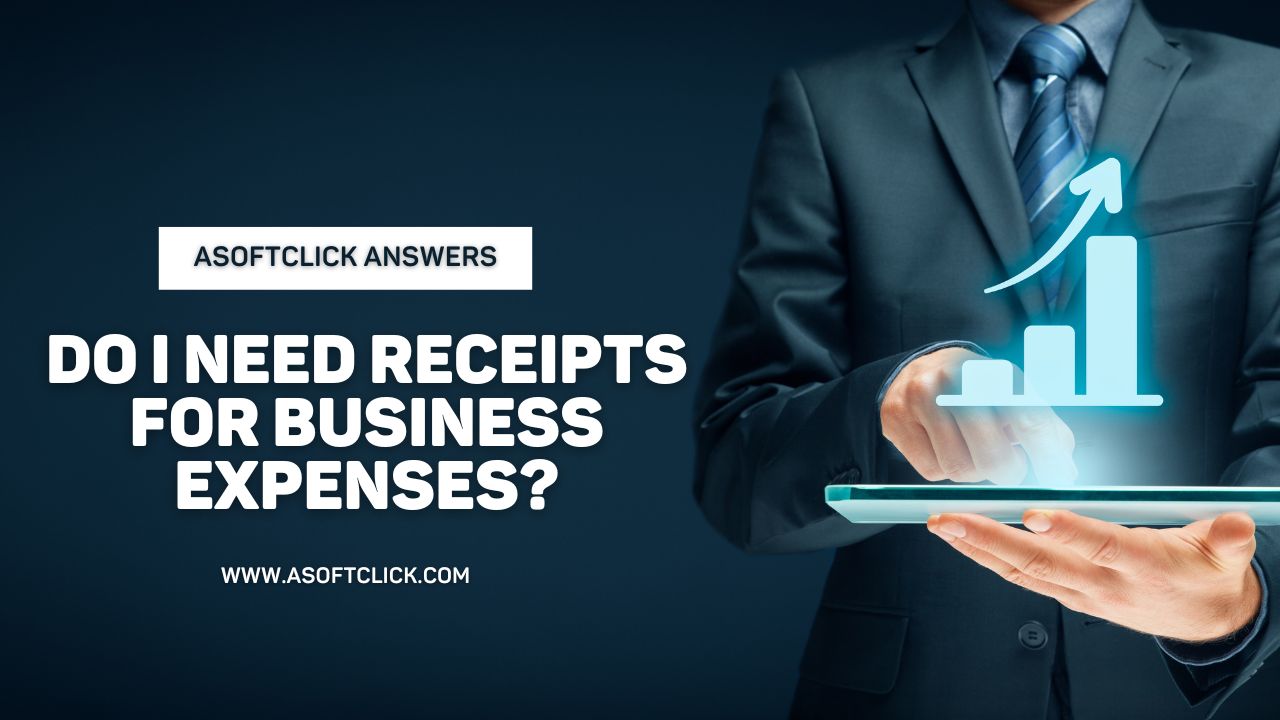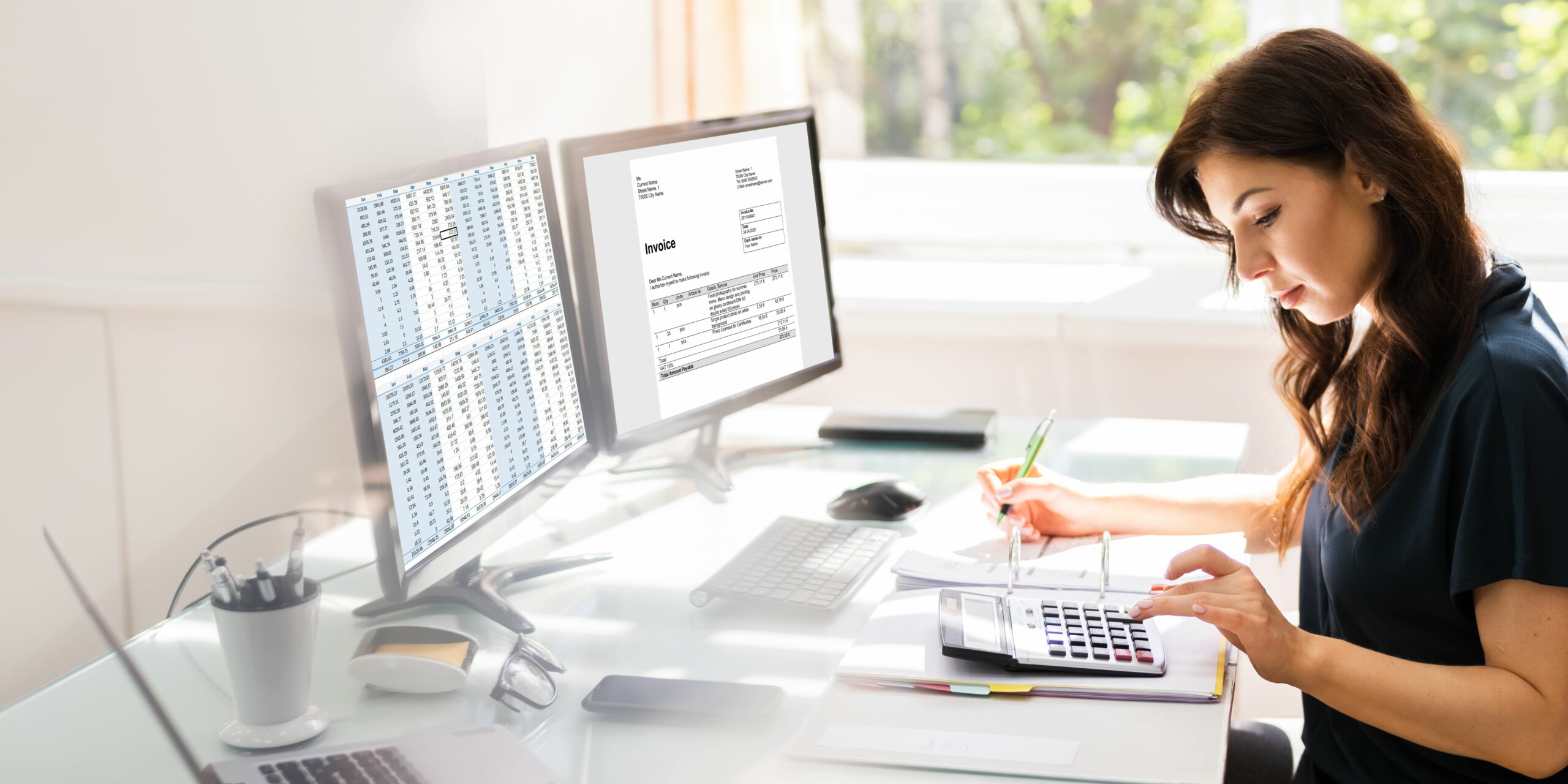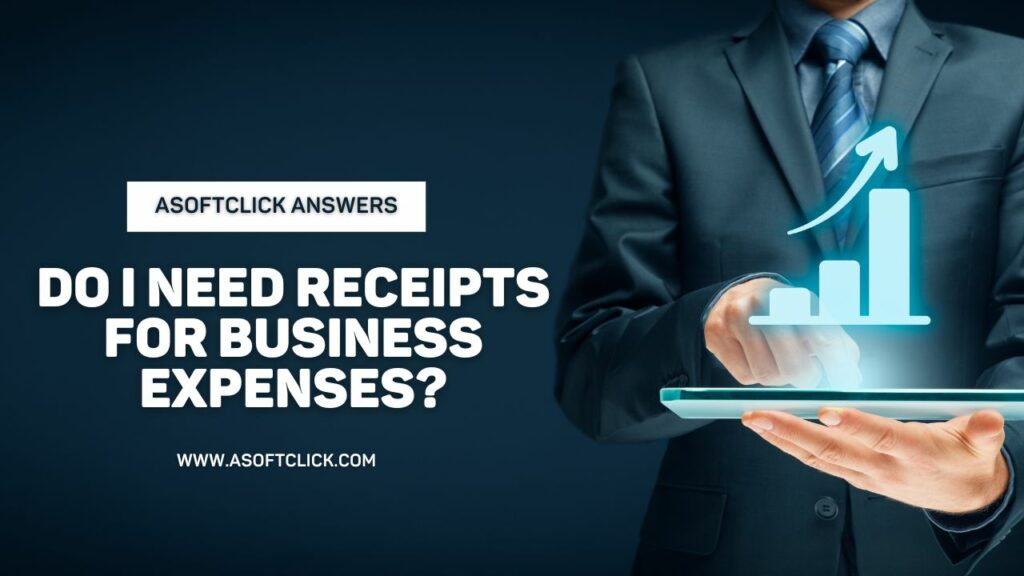 When it comes to managing your business spending, one common issue is, “Do I need receipts for business expenses?” This question goes to the heart of financial responsibility and tax compliance for business owners and entrepreneurs. Whether you’re a seasoned professional or just starting your endeavor, understanding the value of maintaining receipts for your business expenditures may save you from future difficulties and guarantee that your financial records are correct and in conformity with the law. “In today’s article, we tackle the often-debated question: Do I need receipts for business expenses, we will look at why receipts are necessary, the sorts of expenses that require documentation, and the best techniques for establishing a well-organized record-keeping system.
When it comes to managing your business spending, one common issue is, “Do I need receipts for business expenses?” This question goes to the heart of financial responsibility and tax compliance for business owners and entrepreneurs. Whether you’re a seasoned professional or just starting your endeavor, understanding the value of maintaining receipts for your business expenditures may save you from future difficulties and guarantee that your financial records are correct and in conformity with the law. “In today’s article, we tackle the often-debated question: Do I need receipts for business expenses, we will look at why receipts are necessary, the sorts of expenses that require documentation, and the best techniques for establishing a well-organized record-keeping system.
What Are Business Expenses?
Business expenses, also known as operating expenses or business costs, are the numerous expenditures incurred in a company’s day-to-day operations. These expenses are necessary for the company’s maintenance and operation, and they are deducted from its revenue to calculate profitability.
Overhead expenses such as rent and utilities, payroll expenses such as salaries and benefits, the cost of goods sold for businesses that manufacture or sell products, marketing and advertising expenses, travel and entertainment costs, professional services fees, depreciation, interest, and financing expenses, repairs and maintenance, taxes, office supplies, utilities, and more are all examples of business expenses.
Proper spending management and tracking are critical for solid financial management, tax compliance, and overall business performance. Small and large businesses alike rely on precise cost records to maintain financial health, make educated decisions, and claim tax deductions as needed.
What can I claim as a business expense?
You can lower your taxable income and, subsequently, your tax liability as a business owner by deducting a variety of expenses from your operation. Depending on your region and the type of business you run, you may be able to deduct different types of expenses, however typical examples of deductible business expenses are as follows:
- Office Rent or Lease
- Utilities
- Wages and Salaries
- Cost of Goods Sold (COGS)
- Marketing and Advertising Expenses
- Professional Fees
- Travel Expenses
- Office Supplies
- Repairs and Maintenance
- Depreciation
- Insurance
- Interest Charges
- Taxes
- Meals and Entertainment
- Home Office Expenses
- Vehicle Expenses
- Contributions to Charitable Organizations
For small business owners and entrepreneurs, the importance of understanding ‘Do I need receipts for business expenses?’ cannot be overstated.
Business expenses for non-VAT registered businesses
Small businesses without VAT registration can still deduct business expenses. Other company expenses are frequently deductible, but not VAT. Rent or lease payments for business premises, utilities such as electricity, water, and internet services directly related to the business location, employee salaries, wages, and benefits, marketing and advertising expenses, professional fees for consultants or services, travel expenses, office supplies, depreciation of business assets, interest and financing costs, business taxes, repairs and maintenance, and other expenses may be included. For tax compliance, financial management, and audit readiness, these expenses must be accurately documented. Non-VAT businesses can optimize deductions while adhering to local tax legislation.
Do I need receipts for business expenses?
When it comes to managing your business finances, the question of ‘Do I need receipts for business expenses?’ can be a source of confusion. Yes, in most cases, you require proper paperwork or business receipts for business spending. For the sake of tax compliance, financial management, meeting legal obligations, being ready for an audit, reimbursement, warranty, and return purposes, and proving the legitimacy of your business costs, proper record-keeping is crucial.
Receipts give you an accurate, transparent, and verifiable record of your expenses, enabling you to track, report, and defend the costs associated with your business while upholding financial integrity. For all company expenses, it’s advisable to keep receipts organized and safely maintained. Digital expense tracking solutions can be especially useful in this regard.
How To Track Business Expenses in 5 Steps
Tracking business spending is an essential aspect of every company’s financial management. It not only helps you keep track of your expenses, but it also assures tax compliance and allows you to make more educated financial decisions. Here are the five steps to tracking your business spending effectively:
Step 1: Open a Business Account

Establishing a specific company bank account is the first step in keeping track of business spending. Maintaining accurate records requires keeping your personal and corporate finances apart. It would be simpler to monitor and handle your financial transactions if all revenue and costs associated with your business came through this account.
Step 2: Choose Accounting Software

To make the expense tracking process more efficient, think about choosing accounting software or tools. Numerous solutions, including Xero, FreshBooks, QuickBooks, and others, provide tools for classifying expenses, automating spending monitoring, and producing financial reports. Select the program that best fits your budget and business requirements.
Step 3: Connect Your Financial Institutions

After selecting an accounting program, link it to your company’s credit card and bank account. Expense tracking becomes more efficient when you link your financial institutions to the software, which enables it to automatically fetch transaction data. Make sure that your accounts are routinely updated and synchronized.
Step 4: File Your Receipts

Keep track of all your business spending receipts, invoices, and supporting documents. These records are necessary to confirm and support your expenses. To facilitate organization and retrieval, think about putting in place a file system that classifies receipts according to the type of spending (e.g., office supplies, travel, utilities).
Step 5: Review Your Business Expenses
![]()
Review and reconcile your business expenses regularly in your accounting software. This stage entails classifying expenses, verifying that they match receipts and invoices, and looking for discrepancies or errors. Detailed expense reports should be provided, including dates, payees, and expense categories, to provide a breakdown of each cost. This level of detail is essential for tax reporting, financial analysis, and planning.
Frequently Asked Questions
How much can I claim without receipts?
Your country’s tax regulations may permit expenses without receipts or documentation. Tax authorities frequently demand businesses maintain accurate and verifiable cost records, including receipts. Some countries, with restrictions, accept nominal spending claims without receipts.
To understand the legislation in your area, speak with a local tax expert or accountant. They can assist you in maximizing deductions and staying in compliance with tax authorities by advising you on expense claim thresholds without receipts.
What types of business expenses are tax-deductible?
Tax-deductible business expenses cover a wide range of charges that a company can deduct from its taxable income, lowering the amount liable to taxation. Operating expenses such as rent, utilities, insurance, and office supplies are common deductible expenses. The same goes for employee compensation such as salaries and benefits, costs of goods sold (COGS) for businesses selling products, marketing and advertising expenditures, and travel and entertainment costs.
The vehicle expenses when used for business purposes, depreciation of business assets, home office expenses for those with a dedicated workspace, interest and financing costs, and business telecommunications costs are also in this category. Navigating the rules and regulations surrounding business expenses can be complex, and one common query is, ‘Do I need receipts for business expenses?’
Do you need physical copies of receipts for taxes?
Physical receipts are not usually required for tax purposes. Many tax authorities accept digital or electronic versions of receipts if they are complete and correct. Scanned photos, PDFs, and electronically generated records are examples of digital copies. It’s vital to keep detailed records, whether physical or digital, that include important facts like the date, amount, vendor, and business purpose of each expense.
How can I track my business expenses for free?
Tracking your business spending for free is possible with a combination of readily available tools and techniques. Begin by creating a thorough expense record in spreadsheet software such as Excel or Google Sheets. For each expense, enter the date, payee/vendor, category, amount, and remarks. Use free scanning programs or save digital invoices in a designated folder in your email or computer for digital receipts. Organize paper receipts in envelopes or folders labeled by spending type and enter the data into your spreadsheet regularly.
Online banking and credit card statements can be extremely useful, especially because many institutions automatically classify expenses. Consider using free cloud storage options to keep your digital receipts and records organized and easily accessible. Some free spending monitoring tools and financial platforms can help automate categorization, although reviewing your records regularly is essential for being financially aware. By using these strategies, you may keep correct expense records for your company without incurring additional costs.
Business expense management often raises questions about documentation, with ‘Do I need receipts for business expenses?’ being a top concern. However, with this comprehensive guide, I am sure you are now knowledgeable about the business expenses for your company.





